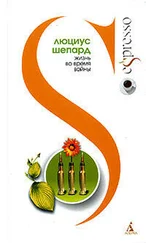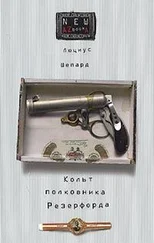Some hours later, after the power of truth had been drained from the arcevoalo, Sylvana spoke to him. “Leave me,” she said. “I have no more use for you.” She was standing by the open door, smiling at him; the threads of her telltale jewels dangled from her right hand.
“What do you mean?” he asked. “What use have you made of me?” He was shocked by the wealth of cruelty in her smile, by her transformation from the voluptuous, the soft, into this glacial creature with glittering eyes.
She laughed—a thin, hard laugh that seemed to chart the jagged edge of such a vengeful thought. “I’ve never known such a fool,” she said. “It’s hard to believe you’re even a man. I wondered if I’d have to drag you into my bed.”
Again she laughed, and, suddenly afraid, the arcevoalo pulled on his clothes and ran, her derisive laughter chasing him down the hall and out into the dove-gray dawn of Sangue do Lume, whose machines were already beginning to restore a fraudulent perfection to its flaking walls.
* * *
All that day the arcevoalo kept to his room in the Valverde house. He knew he should leave the city before Sylvana called down judgment upon him, but he found that he could not leave her, no matter how little affection she had for him. He understood now the nature of love, its blurred, irrational compulsions, its torments and its joys, and he doubted it would ever loosen its grip on him. But understanding it had made his choice no easier, and so perhaps he did not entirely understand, perhaps he did not see that love enforces its own continuum of choices, even upon an inhuman celebrant. There was no end to his confusion. One moment he would feel drawn back to the jungle, the next he would wonder how he could have considered such a reckless course. At dusk his reverie alternated between a perception of formless urges and a sequence of memories in which Joao Merin Nascimento staggered through a green hell, his brain afire and death a poisoned sugar clotting his veins. Night fell, and having some frail hope that Sylvana would do nothing, that things might go on as before, the arcevoalo left the house and walked toward the main square.
Though it was no holiday, though no fete had been scheduled, of all the beautiful nights in Sangue do Lume, this night came the closest to perfection, marred only by the whining of the machines functioning at peak levels. In the square the palm crowns flickered like green torches beneath an unequaled array of stars, and beams of light from the window shone like benedictions upon the fountain, whose spouts cast up sprays of silver droplets that fell to the ear as a cascade of guitar notes. Against the backdrop of gray stones and white stucco, the graceful attitudes of the young men and women, strolling and dueling, lost in a haze of mutual admiration, seemed a tapestry come to life. Even the arcevoalo’s grim mood was brightened by the scene, but on drawing near the group of young men gathered about Orlando, on hearing Orlando’s boastful voice, his mood darkened once again.
“.. .his blessing to Sylvana and I,” Orlando was saying. “We’ll be wed during the Festival of Erzulie.”
The arcevoalo pushed through the group of listeners and confronted Orlando, too enraged to speak. Orlando put a hand on his shoulder. “My friend!” he said. “Great news!” But the arcevoalo struck his hand aside and said, “Your news is a lie! You will never marry her!”
It may have been that Orlando thought his friend was still trying to protect him from a loveless marriage, for he said, “Don’t worry—”
“It’s I who made love to her last night,” the arcevoalo cut in. “And it’s I who’ll marry her.”
Orlando reached for his cintral, whose green tendrils were dangling over the edge of the fountain; but he hesitated. Perhaps it was friendship that stayed his hand, or perhaps he believed that arcevoalo’s friendship was so great that he would lie and risk a duel to prevent the marriage.
Then a woman laughed—a thin derisive laugh.
The arcevoalo turned and saw Sylvana and Caudez standing a dozen feet away. Hanging from a gold chain about Sylvana’s neck was her telltale emerald, its blackness expressing the malefic use she had made of her body the previous night. Caudez was smiling, a crescent of white teeth showing forth from this thicket of a beard.
* * *
Finally convinced that his friend had told the truth, Orlando’s face twisted into an aggrieved knot, displaying his humiliation and pain. He picked up the cintral and lashed out at the arcevoalo. The sharp tendrils slithered through the air like liquid green swords; but at the last second—recognizing their ally—they veered aside, spasmed, and drooped lifelessly from Orlando’s hand. His mind a boil of rage, unable by logic to direct his anger toward his true enemy, the arcevoalo plucked a knife from a bystander’s sash and plunged it deep into Orlando’s chest. As Orlando toppled onto his back, a hush fell over the assemblage, for never had they witnessed a death more beautiful than that of the Valverde’s eldest son. The palms inclined their spiky heads, the fountain wept tears of crystalline music. Orlando’s features acquired a noble rectitude they had not had in life; his blood shone with a saintly radiance and appeared to be spelling out a new language of poetry over the cobblestones.
“Now!” cried Caudez do Tuscanduva, his black eyes throwing off glints that were no reflections but sparks of an inner fire banked high. “Now has the great wrong done my father by the House of Valverde been avenged! And not by my hand!”
Murmurs of admiration for the subtlety of his vengeance spread through the crowd. But the arcevoalo—gone cold with the horror of his act, full of self-loathing at having allowed himself to be manipulated— advanced upon Caudez and Sylvana, his knife at the ready.
“Kill him!” shouted Caudez, exhorting the young men. “I have no quarrel with his choice of victims, but he has struck down a man whose weapon failed him. Such cowardice must not go unpunished!”
And the young men, who had always suspected the arcevoalo of being lowborn and thus had no love for him, ranged themselves in front of Caudez and Sylvana, posing a barrier of grim faces and shining knives.
When men refer to the arcevoalo, they speak not only of the one who stood then beside the fountain, but also of his incarnations, and they will tell you that none of these ever fought so bravely in victory as did their original in defeat that night in Sangue do Lume. Fueled by the potentials of hatred and love (though that love had been mingled with bitterness), he spun and leaped, living in a chaos of agonized faces and flowers of blood blooming on silk blouses; and while the sad music of the fountain evolved into a skirling tantara, he left more than twenty dead in his wake, cutting a path toward Caudez and Sylvana. He received wounds that would have killed a man yet merely served to goad him on. and utilizing all his moon-given elusiveness, he avoided the most consequential of the young men’s thrusts. In the end, however, there were too many young men, too many knives, and, weakening, he knew he would not be able to reach the governor and his daughter.
There came a moment of calm in the storm of battle, a moment when nine of the young men had hemmed the arcevoalo in against the fountain. Others waited their chance behind them. They were wary of him now, yet confident, and they all wore one expression: the dogged, stuporous expression that comes with the anticipation of a slaughter. Their unanimity weakened the arcevoalo further, and he thought it might be best to lay his weapon down and accept his fate. The young men sidled nearer, shifting their knives from hand to hand; the music of the fountain built to a glorious crescendo of trumpets and guitars, and the pale, beautiful bodies of the dead enmeshed in a lacework of blood seemed to be entreating the arcevoalo, tempting him to join them in their eternal poise. But in the next moment he spotted Caudez smiling at him between the shoulders of his adversaries, and Sylvana laughing at his side. That sight rekindled the arcevoalo’s rage. With an open-throated scream, choosing his target in a flash of poignant bitterness, he hurled his knife. The blade whirled end over end, accumulating silver fire, growing brighter and brighter until its hilt sprouted from Sylvana’s breast. Before anyone could take note of the artful character of her death, she sank beneath the feet of the milling defenders, leaving Caudez to stare in horror at the droplets of her blood stippling his chest. And then, seizing the opportunity provided by the young men’s consternation, the arcevoalo ran from the square, through the flawless streets and into the Favelin, past the hovel where Ana and his unborn son awaited an unguessable future in the light of her dying god. He clambered over the gray metal wall and sprinted into the jungle.
Читать дальше






